Digital Health Innovations for Strengthening Primary Healthcare Access and Disease Prevention in Africa

In the context of the recent cooperation agreement signed between the African Digital Health Research Institute and the Norwegian Centre for E-health Research we highlight some topics that can lead to project proposals. These research topics emphasize health equity, infectious disease control, and improving healthcare accessibility through digital tools is very much inevitable in Africa.
-
Telemedicine and Mobile Health Solutions for Rural Areas
-
Development of Telehealth Platforms:
NSE is located in Tromsø and shares challenges with some African communities such as the large distance across municipalities and the complexity in accessing some medical services. In this regard, NSE and ADHRI will research on how telemedicine can be applied to develop affordable, accessible telehealth solutions designed for remote areas with limited medical infrastructure. These platforms will facilitate patient monitoring, remote diagnosis, and consultations, enabling healthcare access even in underserved communities.
-
Technical Expertise and Best Practices:
ADHRI and NSE will establish best practices in telemedicine, including technical support and guidance on creating robust, low-bandwidth solutions that are sustainable and easy to maintain in rural settings. This will also include the appropriate use of Health Technology Assessment and evaluation methods to determine the impact of telemedicine interventions.
-
Development of Telehealth Platforms:
-
Digital Surveillance for Epidemic Preparedness and Response
-
Disease Surveillance Systems:
ADHRI and NSE will build strong digital health surveillance systems that allow for rapid data collection, mobile reporting, and predictive modeling for diseases such as malaria and tuberculosis.
-
Data Sharing and Analytics:
Through knowledge-sharing on data analytics and predictive models, ADHRI and NSE can identify emerging health threats and improve preparedness strategies, tailored to the epidemiological profile of the African continent.
-
Disease Surveillance Systems:
-
Digital Health Literacy and Community Empowerment
-
Community Health Education:
ADHRI and NSE will implement digital health literacy programs to empower local communities to manage their health, understand disease prevention, and proactively engage in public health efforts. This could include mobile applications and educational platforms designed in local languages and tailored to community needs.
-
Workshops and Training Programs:
ADHRI and NSE will use community health education experiences in Norway to design workshops, webinars, and seminars to train healthcare professionals, educators, and community leaders on digital tools for health management.
-
Community Health Education:
-
AI and Data-Driven Health Interventions
-
AI-Based Disease Prevention Tools:
ADHRI and NSE will develop AI-powered tools to analyze health data and uncover disease patterns, risk factors, and service gaps. This approach can improve healthcare interventions by ensuring they are data-driven, culturally relevant, and responsive to Africa's unique health needs.
-
Joint Research on Health Interventions:
Through collaborative research, the two institutions will refine AI-driven health strategies that address primary healthcare and disease prevention, contributing to improved health outcomes across the continent. This project will improve healthcare strategies tailored to African populations, ensuring culturally sensitive and relevant interventions.
-
To implement a digital model for primary healthcare in Africa, focusing on utilizing mobile health (mHealth) technologies like smartphone apps and SMS for patient registration, appointment scheduling, health education, disease surveillance, remote consultations, electronic medical records (EMRs), and drug inventory management, while prioritizing accessibility through low data usage, local language support, and robust infrastructure development to reach rural populations, alongside extensive training for healthcare workers to ensure effective adoption and utilization.
-
AI-Based Disease Prevention Tools:
Each of these focus areas addresses both immediate and long-term health challenges in Africa.
